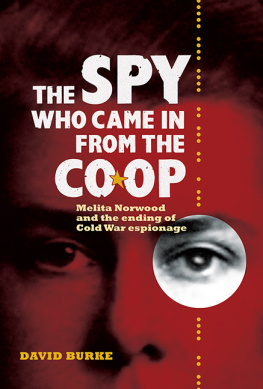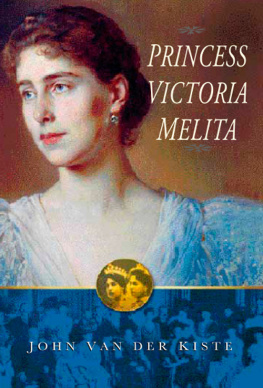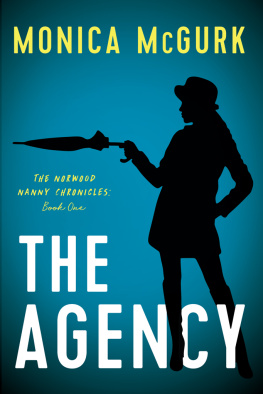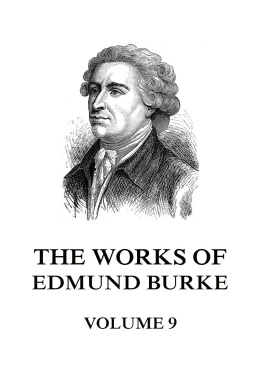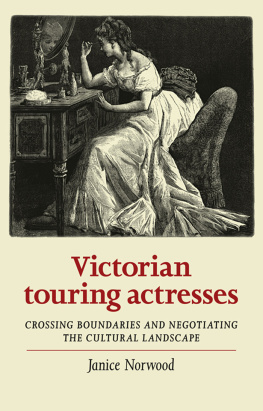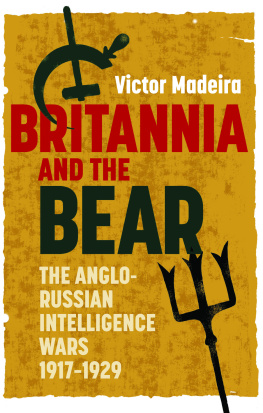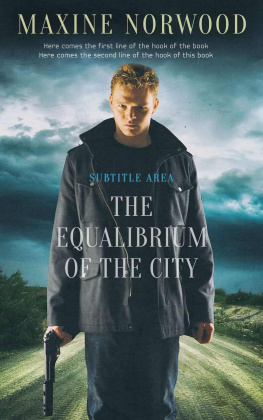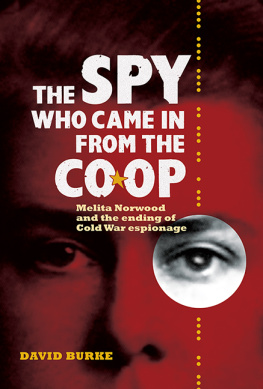Burke David - The spy who came in from the Co-op : Melita Norwood and the ending of Cold War espionage
Here you can read online Burke David - The spy who came in from the Co-op : Melita Norwood and the ending of Cold War espionage full text of the book (entire story) in english for free. Download pdf and epub, get meaning, cover and reviews about this ebook. City: Great Britain, Soviet Union, year: 2013, publisher: The Boydell Press, genre: Non-fiction. Description of the work, (preface) as well as reviews are available. Best literature library LitArk.com created for fans of good reading and offers a wide selection of genres:
Romance novel
Science fiction
Adventure
Detective
Science
History
Home and family
Prose
Art
Politics
Computer
Non-fiction
Religion
Business
Children
Humor
Choose a favorite category and find really read worthwhile books. Enjoy immersion in the world of imagination, feel the emotions of the characters or learn something new for yourself, make an fascinating discovery.
- Book:The spy who came in from the Co-op : Melita Norwood and the ending of Cold War espionage
- Author:
- Publisher:The Boydell Press
- Genre:
- Year:2013
- City:Great Britain, Soviet Union
- Rating:5 / 5
- Favourites:Add to favourites
- Your mark:
- 100
- 1
- 2
- 3
- 4
- 5
The spy who came in from the Co-op : Melita Norwood and the ending of Cold War espionage: summary, description and annotation
We offer to read an annotation, description, summary or preface (depends on what the author of the book "The spy who came in from the Co-op : Melita Norwood and the ending of Cold War espionage" wrote himself). If you haven't found the necessary information about the book — write in the comments, we will try to find it.
Burke David: author's other books
Who wrote The spy who came in from the Co-op : Melita Norwood and the ending of Cold War espionage? Find out the surname, the name of the author of the book and a list of all author's works by series.
The spy who came in from the Co-op : Melita Norwood and the ending of Cold War espionage — read online for free the complete book (whole text) full work
Below is the text of the book, divided by pages. System saving the place of the last page read, allows you to conveniently read the book "The spy who came in from the Co-op : Melita Norwood and the ending of Cold War espionage" online for free, without having to search again every time where you left off. Put a bookmark, and you can go to the page where you finished reading at any time.
Font size:
Interval:
Bookmark:
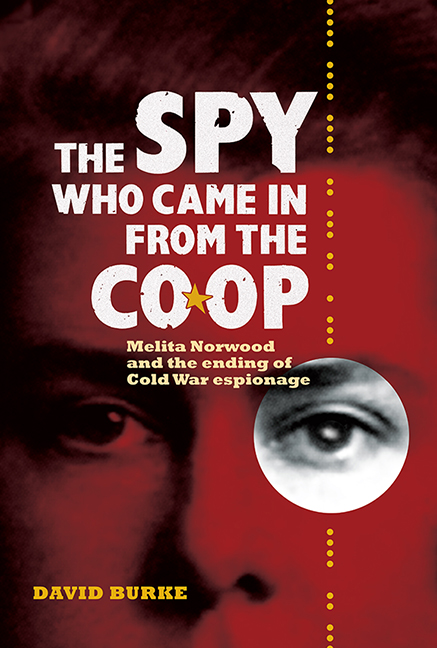
Dr David Burke is probably the only historian ever to have had a career-changing experience in Milton Keynes bus station. On Saturday 11 September 1999 he was on his way from Leeds to have lunch with Melita Letty Norwood in Bexleyheath. To his astonishment, while changing buses at Milton Keynes, he saw Mrs Norwoods photograph on the front page of The Times with the memorable caption, The Spy Who Came In From The Co-op, which he has aptly chosen as the title of his biography. The Times that day began serialising The Mitrokhin Archive: The KGB in Europe and the West , which I had written in collaboration with the dissident KGB archivist, Vasili Mitrokhin, who had escaped to Britain with a hoard of KGB material, including notes on Mrs Norwoods file. But The Times was not the only newspaper interested in her extraordinary career as Britains longest-serving Soviet spy. On looking round the newsstand at Milton Keynes, Dr Burke saw Mrs Norwoods photograph on the other front pages too, with the exception of Sporting Life. By the time he had got over his shock at the revelation of her involvement in espionage, he had missed his bus.
Mrs Norwood, meanwhile, was preoccupied but surprisingly unintimidated by the massed ranks of reporters outside her end-of-terrace house. Oh dear, she told The Times reporter, the only one allowed inside her house. This is so different from my quiet little life. I thought Id got away with it. But Im not that surprised its finally come out. Letty Norwood had been offered accommodation elsewhere before the media storm broke, but decided to stay and face the reporters. The image of the great-granny spy walking down her garden path between well-tended rose trees to make a televised confession, despite the fact that it was distinctly (if unsurprisingly) economical with the truth, briefly caught the imagination of millions of viewers and newspaper readers. Im 87, she began, and unfortunately my memory is not what it was. I did what I did not to make money, but to help prevent the defeat of a new system which had, at great cost, given ordinary people food and fares which they could afford, given them education and a health service.
Letty Norwood was instantly inundated with lucrative media offers for her life story. She turned all of them down. As during her long career as a Soviet spy, she was uninterested in making money. Instead, Mrs Norwood told much of her story to Dr Burke, impressed by his research on revolutionary migrs from the Tsarist Empire, of whom her father had been one, as well as by his broader understanding of both the Soviet Union and the British Left. This outstanding biography demonstrates the wisdom of her choice. Though, as with all pioneering spy biographies, this one contains some controversial moments, Dr Burkes brilliant archival research has successfully uncovered the many layers of Norwoods inconspicuous but extraordinary career.
The Spy Who Came In From The Co-op also identifies some important areas for future research, among them the revelation that in the mid-1930s Soviet intelligence had identified Lawn Road Flats, Hampstead, at the epicentre of Londons chattering classes, as the most promising base for its British operations, with residents who included the recruiter of the celebrated Cambridge Five. That will be the subject of Dr Burkes next book.
Christopher Andrew
Professor of Modern and Contemporary History, University of Cambridge
Convenor of the Cambridge Intelligence Seminar
F or W illiam, T ed and M ollie

I first met Melita Norwood in 1997. I didnt know that she had been a spy, and like most people who knew or met her I found her a pleasant enough old lady with distinctly leftwing views. At eighty-five she was still an active member of the Campaign for Nuclear Disarmament and, for over twenty years, a fully paid-up member of the British Communist Party. Born before the Russian Revolution of 1917, she had spent over thirty-nine years in the service of the KGB and Lenins Bolshevik Revolution. She had invited me to Sunday lunch to talk about her father, Alexander Sirnis, a Latvian disciple of the Russian novelist Leo N. Tolstoy. During the First World War Alexander had been responsible for the publication of the authorized English edition of Tolstoys Diaries along with Dr C. T. Hagberg Wright of the London Library.
It was a frugal lunch, fish fingers and greens from her allotment washed down by tea served in Che Guevara mugs. My interest in her father went back to research undertaken at the Universities of Birmingham and Greenwich into the history of the Russian political migr community in Britain during the twentieth century. Melita had kept several files on Alexanders activities and on other Russians living on the south coast of England in the early years of the twentieth century. It was interesting material. Although on a first reading these files appeared to have very little to do with espionage, apart from the occasional mention of Russians who I knew had been involved in the world of secrets and espionage, they acquired greater significance once she began to talk about her spying career. In fact, I found it amusing that she should have known such figures, and when questioned on them she would laugh and say things like, Oh, so and so. He was a bit of a devil.
At the time I was teaching at Trinity & All Saints College, Leeds, and would travel by coach to London once a month to enjoy a Sunday lunch of fish fingers and greens (or the occasional kipper) and go through Melita Norwoods papers. They were enjoyable outings. Melita Norwood had a good sense of humour, and kept up with current affairs. Her favourite television personality was the presenter Jeremy Paxman, and she rarely missed an edition of Newsnight .
On 11 September 1999 I learnt that she had been a major spy. It happened at Milton Keynes coach station. I was on my way to visit her when the coach I was travelling on from Leeds to Londons Victoria coach station pulled up as usual at Milton Keynes coach station to pick up and drop off passengers. It had been an ordinary journey, and we had five minutes before the coach continued on its way to Victoria. I got off and went into the shop and cafeteria by the bus shelter to buy a newspaper, and there I came face to face with Melita Norwood staring at me from the front page of The Times . She had been accused of passing on Britains atomic secrets to Moscow. I was a little shocked, to say the least. When I got to London I immediately telephoned her. She sounded a little vague: Who is it? Its me. Lunch, remember? Oh, yes! Youd better come next week. Im afraid Ive been rather a naughty girl. Never mind. Come next week.
When I finally arrived the following week Melita came to the door positively beaming, looking very relaxed and mischievous. She was wearing a long, tatty, old-fashioned brown woollen mans overcoat. A hat of sorts was perched precariously on her head, and she clutched a knife in one hand and sprouting broccoli in the other. She ushered me into the back room next to the kitchen. It was rather a bare room apart from a large kitchen table, an armchair, a television set and a Utility sideboard. French windows looked out on to what was still an attractive garden. Lying on the kitchen table were copies of the Communist Partys newspaper The Morning Star. At the age of eighty-nine, every Saturday she still delivered thirty-two copies of the paper to friends and supporters of the Party alike. I picked up the one she saved for me and read. The tin kettle on the stove began to whistle, increasing in shrillness as she reached down the two Che Guevara mugs she used for serving up Co-op tea. She shuffled back into the room, put the mugs down unsteadily and began. I asked her if I could record the interview but she said that shed rather I didnt, but that I could take notes if I liked. It was a strange interview. It was obvious that she was still in a state of shock, and her eccentric, mischievous manner was her way of coping. I just listened. I hadnt prepared any questions, and so I just let her talk, jotting down notes as quickly as I could. All the names from Russian espionage that we had spoken about on previous occasions now entered the drama in a different capacity. It was fascinating: as she spoke she became more animated, younger even, the mischievous woman that she once was, her confidence regained. When I left she told me I was to come back in a couple of weeks.
Font size:
Interval:
Bookmark:
Similar books «The spy who came in from the Co-op : Melita Norwood and the ending of Cold War espionage»
Look at similar books to The spy who came in from the Co-op : Melita Norwood and the ending of Cold War espionage. We have selected literature similar in name and meaning in the hope of providing readers with more options to find new, interesting, not yet read works.
Discussion, reviews of the book The spy who came in from the Co-op : Melita Norwood and the ending of Cold War espionage and just readers' own opinions. Leave your comments, write what you think about the work, its meaning or the main characters. Specify what exactly you liked and what you didn't like, and why you think so.

